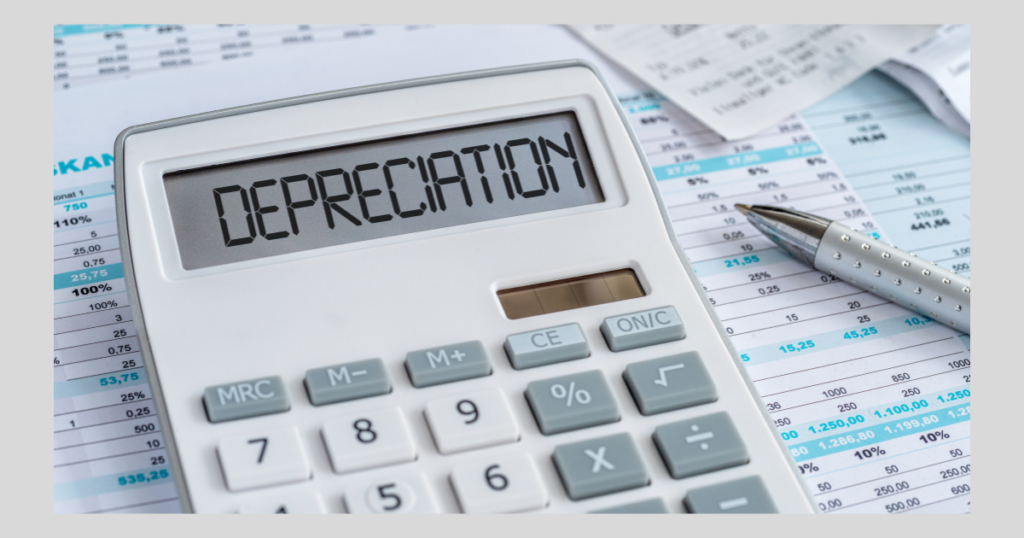Maximize Your Tax Savings:
Understanding Depreciation Recapture and Its Impact on Your Property Sale

Depreciation recapture is a critical tax concept that property owners, especially those dealing with real estate and equipment, should understand. While depreciation provides significant tax benefits over the life of an asset, selling that asset can trigger a tax event known as depreciation recapture. This blog will explore what depreciation recapture is, how it’s calculated, the tax implications, and strategies to minimize its impact.
What is Depreciation Recapture?
Depreciation recapture occurs when you sell a depreciated asset for more than its adjusted basis. The adjusted basis is the original cost of the asset minus the depreciation you’ve claimed over the years. When the sale price exceeds the adjusted basis, the IRS requires you to “recapture” the depreciation deductions you previously claimed, converting them into taxable income.
Example: Suppose you bought a piece of equipment for $100,000 and claimed $40,000 in depreciation over several years. If you sell the equipment for $90,000, your adjusted basis is $60,000 ($100,000 original cost – $40,000 depreciation). The difference between the sale price and the adjusted basis ($90,000 – $60,000 = $30,000) is subject to depreciation recapture.
How Depreciation Recapture is Calculated
The process for calculating depreciation recapture varies depending on the type of asset:
- Real Estate: For real estate, the recapture amount is taxed at a maximum rate of 25%. This applies to the portion of the gain that is attributed to depreciation deductions.
- Other Assets: For assets like equipment, vehicles, or machinery, the recapture is generally taxed as ordinary income, which could be higher than the capital gains rate.
Key Formula: Recapture Amount=Sale Price−Adjusted Basis\text{Recapture Amount} = \text{Sale Price} – \text{Adjusted Basis}Recapture Amount=Sale Price−Adjusted Basis
This recapture amount is then added to your taxable income, potentially pushing you into a higher tax bracket.
Depreciation Recapture Tax Rates
The tax rates for depreciation recapture can significantly impact your final tax liability:
- 25% for Real Estate: Depreciation recapture on real estate is capped at a 25% tax rate. This means that even if your ordinary income tax rate is higher, the recapture portion is taxed at 25%.
- Ordinary Income Rates for Other Assets: For non-real estate assets, the recapture is taxed at your ordinary income tax rate, which could be as high as 37% depending on your income level.
Strategies to Minimize Depreciation Recapture
Fortunately, there are several strategies you can employ to minimize the impact of depreciation recapture:
- 1031 Exchange: One of the most effective ways to defer depreciation recapture is through a 1031 exchange, which allows you to roll over the proceeds from the sale of one property into the purchase of another like-kind property. By doing so, you defer paying taxes on the gain, including depreciation recapture.
- Installment Sales: Structuring the sale of your property as an installment sale allows you to spread out the recognition of the gain over several years. This can keep you in a lower tax bracket and reduce the impact of depreciation recapture in any single year.
- Reinvest in the Property: Instead of selling the asset, consider reinvesting in it through improvements or upgrades. This can increase the asset’s basis, potentially reducing the gain upon sale.
- Offset Gains with Losses: If you have other assets that have decreased in value, consider selling them in the same year as your depreciated asset. The losses can offset the gains, reducing your overall tax liability.
Common Misconceptions About Depreciation Recapture
There are several misconceptions about depreciation recapture that can lead to costly mistakes:
- Myth: Depreciation recapture only applies to real estate.
- Fact: Depreciation recapture applies to all depreciable assets, including equipment, vehicles, and machinery.
- Myth: You can avoid recapture by simply not taking depreciation deductions.
- Fact: The IRS assumes that depreciation was taken, whether or not you actually claimed it, and you will be required to recapture it upon the sale of the asset.
Depreciation recapture can be a complex and potentially costly aspect of selling a depreciated asset. Understanding how it works and planning accordingly can help you minimize its impact. Whether through strategic tax planning, utilizing 1031 exchanges, or working with a tax professional, there are ways to manage depreciation recapture effectively.
If you’re considering selling an asset that has been depreciated, it’s crucial to consult with a tax professional to explore your options and ensure you’re making the most tax-efficient decision.
Join our newsletter to receive our latest updates directly in your inbox.




